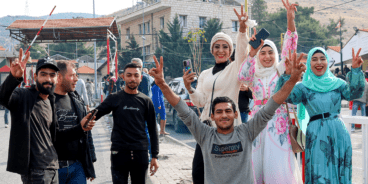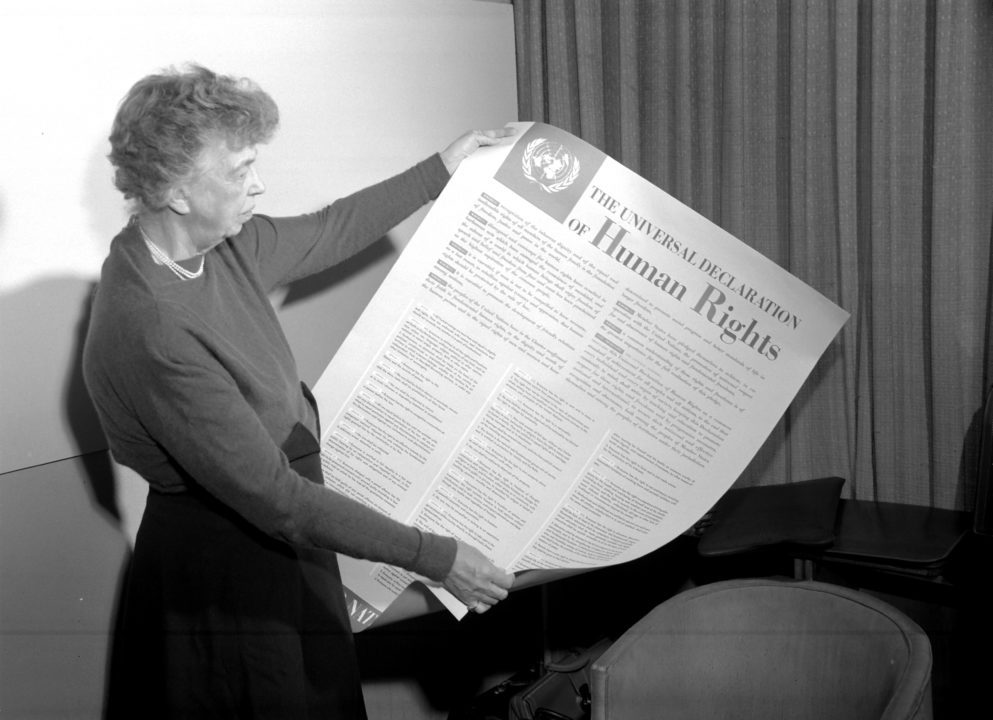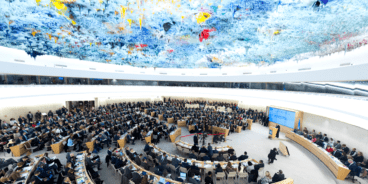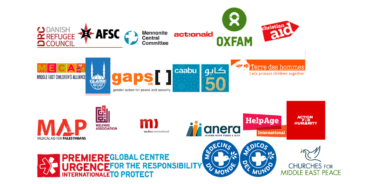

Statement on the 70th Anniversary of the Genocide Convention and the Universal Declaration of Human Rights
On 9 and 10 December the international community will celebrate the 70th anniversary of the Convention on the Prevention and Punishment of the Crime of Genocide and the Universal Declaration of Human Rights. The creation of these landmark documents, inextricably linked in sentiment as well as time, was guided by the “never again” conviction in the aftermath of World War II. In the wake of a war characterized by widespread civilian suffering and the systematic extermination of six million people during the Holocaust, the international community proclaimed, for the first time, a set of fundamental human rights that must be universally protected. At the same time, the new United Nations organization also defined and outlawed the crime of genocide.
Notwithstanding the existence of these aspirational documents and the ratification of the Genocide Convention by 149 member states, in the 70 years since their creation there have been numerous failures to uphold universal human rights and prevent genocide. The second half of the 20th century witnessed multiple conflicts where genocide was perpetrated, including by the Khmer Rouge in Cambodia during the 1970s, the genocidal campaign against the Kurds in Iraq during the 1980s, the 1994 genocide against the Tutsi in Rwanda, and the 1995 genocide at Srebrenica in the former Yugoslavia.
Despite global advances in health and welfare and a declining number of wars between states, since 2011 the international community has been confronted by seemingly intractable civil wars in Syria, South Sudan and Yemen; endemic violence and instability in the Democratic Republic of the Congo and Central African Republic; the rise of the Islamic State of Iraq and the Levant (ISIL), Boko Haram and other armed extremist groups; as well as deteriorating human rights situations in Burundi, Cameroon, Venezuela and elsewhere. In the midst of this turmoil, there has been a general erosion of respect for international norms and laws. In today’s major armed conflicts, for example, an estimated 90 percent of all casualties are civilians.
Most disturbing of all, the threat of genocide persists. Between 2014 and 2017 ISIL committed genocide against the Yazidi minority in northern Iraq. Recently, the UN Human Rights Council’s Independent International Fact-Finding Mission on Myanmar determined that genocide has been perpetrated against the ethnic Rohingya population in that country. Justice for the victims and survivors of these atrocities should not be delayed or denied.
Over the past 70 years the international community has struggled to end impunity and ensure accountability for those who violate the principles enshrined in the Universal Declaration of Human Rights and the Genocide Convention. One of the most notable positive examples is the establishment of the International Criminal Court, the first permanent international institution for the prosecution of war crimes, genocide and crimes against humanity. We encourage all UN members to become a States Party to the Rome Statute and implore the remaining 45 states who have not yet ratified the Genocide Convention to do so immediately.
Similarly, the principle of the Responsibility to Protect (R2P) was developed as a means of mobilizing “timely and decisive action” by the international community to prevent or halt mass atrocities – genocide, war crimes, crimes against humanity and ethnic cleansing. While the Universal Declaration enumerates the human rights that every individual is entitled to enjoy, and the Genocide Convention defines and criminalizes genocide, neither document determines how these rights should be protected and how atrocities can be prevented. R2P was created to answer the question of “how?” By committing to uphold their responsibility to protect at the 2005 UN World Summit, the international community promised to turn words into deeds, and to actively prevent mass atrocity crimes wherever and whenever they are threatened.
At a time when human rights and international law appear to be under unprecedented attack, R2P remains the most effective principle around which the international community can coalesce when vulnerable populations face the threat of genocide, war crimes, and crimes against humanity. Just as the Universal Declaration and Genocide Convention represent the vision of a world where all human beings can live free and equal in dignity and rights, R2P is a promise to act on behalf of people for whom mass atrocities are not abstract words, but real acts that pose an existential threat to them, their loved ones and their communities. On this historic anniversary, we encourage all states to reaffirm this solemn commitment.
Related Publications


